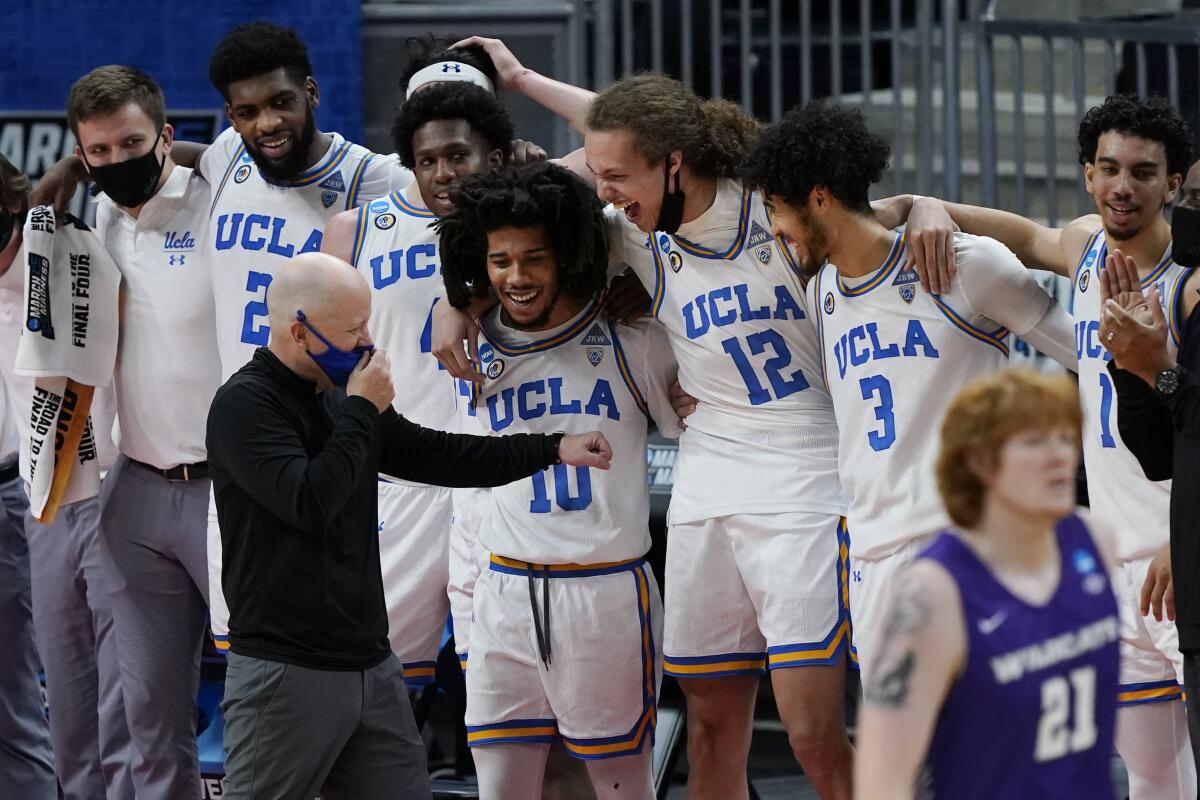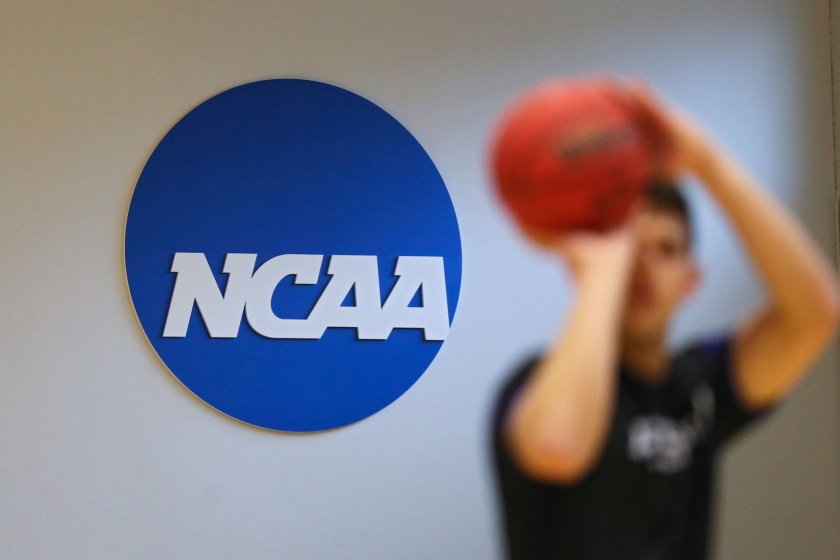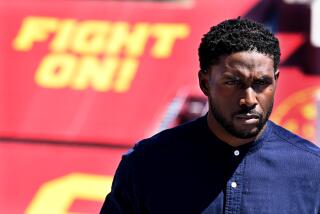‘We all better get on board’: Mick Cronin on Supreme Court’s unanimous NCAA ruling

His team having dazzled the nation during an unexpected run to the Final Four, UCLA basketball coach Mick Cronin is something of an expert in the inequities of a business model that generates billions of dollars for the NCAA while providing athletes with little more than a free swag bag.
That model appears to be further crumbling with the Supreme Court’s unanimous decision Monday clearing the way for additional compensation for college athletes as long as it’s directly linked to their education, part of what Cronin sees as a day of dual reckoning for the NCAA.
Already grappling with the issue of how to fairly implement rules that would allow athletes to profit off their name, image and likeness, the governing body for college sports now must address other ways in which athletes might be rewarded.
“This is a long time coming and we all better get on board,” Cronin told The Los Angeles Times. “Not only is it right and just, we all better get on board and adjust and get this done if we want to maintain college athletics and our level of play and our level of significance. We need to realize that there needs to be no more fighting.
“It’s a new day and we need to figure out NIL, we need to figure out athlete compensation and we need to realize it’s a new day in America and the courts are saying so.”
Cronin said his hope is that politicians, NCAA executives and conference commissioners can figure out an answer for the name, image and likeness conundrum before July 1, when NIL legislation is set to be enacted in some states but not others. In California, athletes will not be allowed to profit off their name, image and likeness before Jan. 1, 2023, barring a state policy change or nationwide rule.
Here’s what you need to know after the Supreme Court sided with athletes in dispute with the NCAA over rules limiting certain compensation.
The disparities could put UCLA at a disadvantage in recruiting against schools located in states ready to enact their NIL legislation next month.
“It’s not a matter of ‘if’ now, it’s a matter of ‘when,’ ” Cronin said of the inevitable move toward approval of NIL, “but if you want a level playing field, it needs to happen by July 1.”
As far as the ways in which athletes might be compensated by schools, that will likely require more time as a host of issues are addressed. Will star players receive more than benchwarmers? What limits will be in place to prevent resource-rich schools from lording their wealth over those with more meager means, deepening the chasm between the haves and the have-nots?
“It’s not as simple as ‘Pay the players,’ ” Cronin said, “because where does the money come from [within] athletic departments operating with 24 sports? I’m glad I’m not an athletic director trying to figure it all out.”
In the coming months, hard decisions must be made as the landscape of college athletics tilts further toward the athlete, eroding years of what amounted to free labor for the NCAA.
“We just went to the Final Four,” Cronin said. “The days of players being told they have to show up an hour early for a practice because they all have to do commercials for CBS and not asking any questions and just doing it for free are over. Those days are clearly over. The days of Kareem Abdul-Jabbar just being thankful to play at UCLA are over.”
More to Read
Go beyond the scoreboard
Get the latest on L.A.'s teams in the daily Sports Report newsletter.
You may occasionally receive promotional content from the Los Angeles Times.








